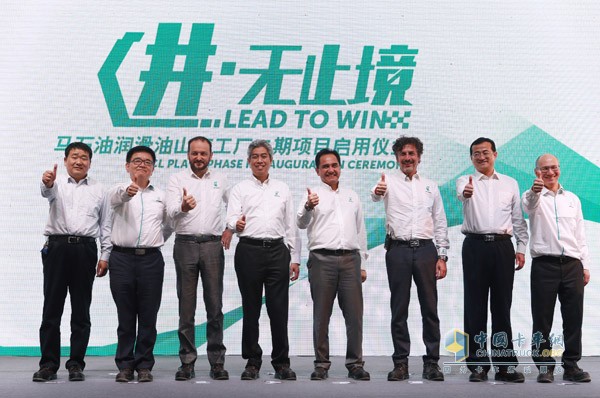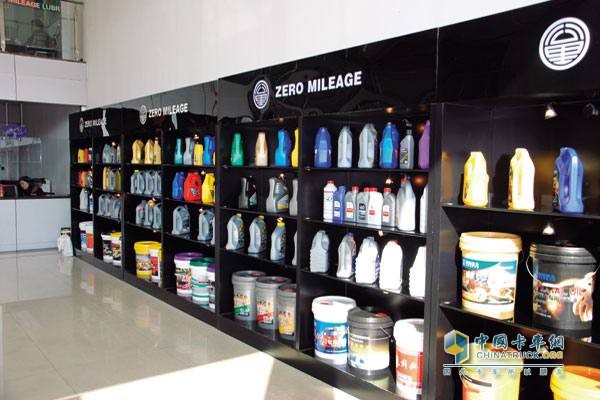“At present, we have more than 30,000 sales terminals or stores in China. The rate of expansion can reach 20% per year.†Giuseppe Pedretti, chief commercial officer of PetroChina Lubricants International Group, said recently that he also stated that Realizing the establishment of a factory in China is an important step for the company to develop its lubricants business. “On the one hand, it can achieve economies of scale; on the other hand, it can also reduce costs,†he said. The Malaysian Petroleum Lubricants International Group is a secondary subsidiary of Malaysian Petroleum Corporation (hereinafter referred to as Malaysian Petroleum). Malaysian Oil is Malaysia's state-owned largest company with an annual output value of approximately US$76 billion, accounting for nearly half of Malaysia’s GDP. In December 2010, PetroChina invested 198 million yuan in the acquisition of Weifang Sanli Oil Co., Ltd., the country's second largest privately-owned lubricants manufacturer. In its “2017-2023 Assessment Report on the Supply and Demand of China's Lubricant Market and Development Prospectsâ€, Zhiyan Consulting pointed out that last year China’s lubricant production increased by 6.14% year-on-year to 6.17 million tons, of which 34.55 were lubricants. Ten thousand tons, the export volume was 99,700 tons, and the domestic apparent consumption was 6,415,800 tons. As an important part of the petrochemical industry, lubricating oil is one of the major oil products other than gasoline and diesel. According to the terminal requirements, it can be divided into two major types, namely transportation oil and industrial oil. Traffic oil is mainly based on gasoline engine oil and diesel engine oil. Industrial oils are mainly based on hydraulic oils, and also include gear oils and compressor oils. In addition, the report pointed out that with the economic slowdown, large-scale infrastructure and industrial investment is decreasing, industrial lubricants regardless of the proportion or demand are gradually falling, while the demand and proportion of vehicle oil is gradually increasing. Recently, the second phase of Mayou Lubricant's Weifang plant in Shandong was officially launched. After the expansion, the annual output of the plant will be increased from the original 45,000 tons to 150,000 tons, covering automotive lubricants, industrial lubricants, grease and many other products. “For Malaysia Oil, China is not only an important market for lubricants, we are now the third largest LNG supplier in the world.†En.Arif, Executive Vice President of PetroChina Downstream Business, told reporters that he also revealed that PetroChina is now Malaysia is building a chemical plant and it is expected to be completed by 2019. The downstream products produced by chemical plants will be supplied to China. “In China, the lubricants market is a highly decentralized market, and China currently has about 200 lubricant suppliers.†BP (Charlotte UK) Castrol Global Vice President Carlos said at a media meeting in March. At the same time, he said that only a few brands of lubricants have the ability to engage in technological research and development and launch innovative research and development. “From a global point of view, 200 dealers of BP lubricants are cooperating and 50,000 vehicles are involved in sales.†Carlos told reporters present. He also said that BP has 20,000 car repair plants in China, basically covering 99% of the market. It is the top three brands in China. Whether it can rank first depends on the specific conditions of different cities. At the end of last year, Kline & Company of the United States issued the "2016 Global Lubricants Industry: Market Analysis and Evaluation" report. The report shows that in 2015, Shell Lubricants relied on the world’s largest lubricant supplier with a market share of 11.6%. As one of the largest passenger car lubricant suppliers in the Chinese market, Clariant’s report mentioned that Shell lubricants accounted for approximately 8% of the Chinese market in 2016, and Shell sold a total of 4.4 million units globally in 2015. -4.6 million tons of finished lubricating oil, of which 30% is in the field of commercial vehicle oil. In addition, Carlos said that although BP's finished lubricant sales ratio is similar to that of Shell, about one-third is passenger cars, one-third is commercial vehicles, and one-third is industrial use, but the value difference is relatively large. Polyurethane System For Safety Shoe Sole Safety Shoes Materials,Polyester Polyol Isocyanate,Shoe Sole Polyurethane Resins,Shoes Outsole Pu Material XUCHUAN CHEMICAL(SUZHOU) CO., LTD , https://www.xuchuanchem.com Ma Oil Lubricant Shangdong Factory Project Launching Ceremony
Ma Oil Lubricant Shangdong Factory Project Launching Ceremony 
With China, the world's largest auto consumption market, the demand for the aftermarket has continued to increase, attracting foreign oil and gas companies to increase their presence in China.